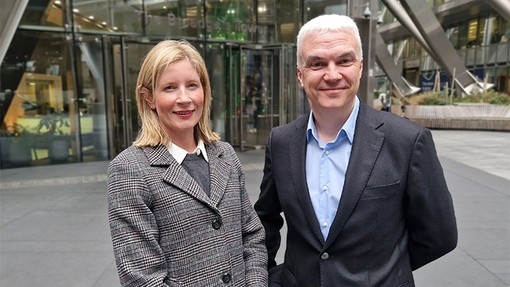Control and disclosure of third party documents

Control and disclosure of third party documents
The issue of control of documents in the hands of third parties is one which comes up regularly in litigation as parties seek access to all documentation which may assist their case – we have reported on this issue previously. In another recent case, the High Court recently decided (Loreley Financing (Jersey) No 30 Ltd -v- Credit Suisse Securities (Europe) Ltd [2023] EWHC 548 (Comm)) that a party to litigation (Claimant) did not have control over documents in the hands of its creditor for the purpose of disclosure. That was the case even though two employees of the creditor acted as the Claimant’s agent for the purposes of conducting the litigation. It was held that despite the agents having access to the documents in their capacity as the creditor’s employees, that did not mean the documents were within the Claimant’s control.
Background
In 2007, the claimant (Loreley) paid $100 million to acquire certain Notes from the defendant (Credit Suisse). The Notes formed part of a collateralised debt obligation transaction. One of the defendants was the seller of the Notes, and the Notes were linked to the credit of certain residential mortgage backed securities with whose securitisation the defendants had been involved. By 2010 Loreley had lost its $100 million investment in the Notes. Lorley brought a claim against Credit Suisse in fraudulent misrepresentation, on the basis that Credit Suisse had made false and dishonest representations which had induced Lorley to buy the Notes.
In the proceedings Credit Suisse argued that the decisions by Lorley were made by its liquidity facility providers IKB Deutsche Industriebank AG (IKB) and Kreditanstalt fur Wiederaufbau (KfW) and argued that it was IKB who decided to launch the litigation against Credit Suisse and KfW who provided instructions to Loreley’s solicitors.
Earlier in the proceedings, Credit Suisse made a CPR Part 18 request to ascertain whether the instructions to Loreley’s solicitors were given by persons at KfW. Lorley refused to answer on the basis that the information was not only irrelevant, but also subject to legal professional privilege. Credit Suisse argued that legal professional privilege did not extend to the identity of persons instructing a solicitor, except in exceptional cases. An application was made to court and the High Court decided that Loreley could not withhold disclosure of the identity of those instructing its lawyers on its behalf on the grounds of litigation privilege. As a result of that decision, Loreley disclosed discrete parts of its engagement letter with its lawyers which showed that the main day-to-day points of contact on behalf of Lorely with its lawyers were two employees of KfW (KfW Employees).
In this most recent application, Credit Suisse sought an order that Loreley disclose the KfW documents to which the KfW Employees had access, on the basis that such documents could be regarded as being within Loreley’s control. In support of this, Credit Suisse referred to KfW’s role in investigating claims that Loreley may have in relation to the Notes, which included obtaining advice from the Loreley’s lawyers before those lawyers were instructed by Loreley in relation to the claim. It was also alleged that Loreley’s directors had no input into the draft particulars of claim, which could only therefore have been produced on the instructions of the KfW Employees, utilising documents to which they had access at KfW. Credit Suisse therefore sought disclosure from Loreley of the KfW documents to which the KfW Employees had access to dating back a number of years on the basis that such documents should be regarded as within Loreley’s control.
The Law
The judge examined the case law on ordering the disclosure of documents in the hands of a third party. Of the cases considered, the judge found the following three cases most helpful in arriving at a decision, namely: Ardila Investments -v- ENRC [2015] EWHC 3761, Various Airfinance Leasing Companies -v- Saudi Arabian Airlines [2021] EWHC 2904 and Berkeley Square Holdings -v- Lancer Property Asset Management [2021] EWHC 849 (Ch). These three cases are authority for the point that a “degree of stringency” is required before a finding that there is the requisite control can be reached. It is insufficient to show a close legal or commercial relationship, or that the third party could be expected to comply with a request. There needed to be evidence of a high degree of control and ‘unfettered access’ to the third party documents before disclosure will be ordered. It is also a requirement that there is a general right to ask for documents, such as an understanding or arrangement which allows access.
Judgment
Accordingly, it was held that the KfW documents were not in Loreley’s control. The judge stated that the focus on the KfW Employees showed a reluctance by Credit Suisse to ‘grapple with the breadth of what is really sought’. The documents the KfW Employees had access to existed because of their employment with KfW and not as a result of them being agents of Loreley, a vital difference. The judge stated further that the KfW Employees could have, in their role as employees of KfW, been granted access to these documents but could have been denied access as an agent of the claimant. A subtle but important distinction.
The issue was analysed through a test of the scope of the agency – ‘must [the KfW employees] have been dealing with these documents in their capacity as agents of the claimant with the authority of the claimant to do these things?’ It was decided that the fact that the KfW Employees may have had control over some documents lodged on KfW files does not mean they had control over all the documents at KfW in relation to the same subject matter going back several years. The Judge said:
‘It is not logical to say that one can extend, through the role of [the KfW employees], back through into [their employer’s] documents. These are not documents which [the KfW employees] have access to as agents of [Loreley]; they have access as employees of [KfW].’
The application therefore failed because Credit Suisse failed to meet the ‘evidential hurdle’ of showing the basis for Loreley to have access to the third party’s documents.
Commentary
Inevitably, when considering issues of control, a very careful analysis of the factual position is required. It is clear that a right to ask for another party’s documents can be based upon an agency relationship but it will depend upon the scope of the agency. The Judge in the current case accepted that her decision meant that “it could be said that it is undesirable that, as a result of a finding that there is no control, that the court will not have the fullest possible material. However, that is a position which is far from unique. That is part and parcel of the approach which this court has long taken and still to a greater or lesser extent takes in relation to the documents of third parties.” It is unlikely that this will be the last that we hear on this subject.
For further information on this topic, please contact Moya Clifford.





